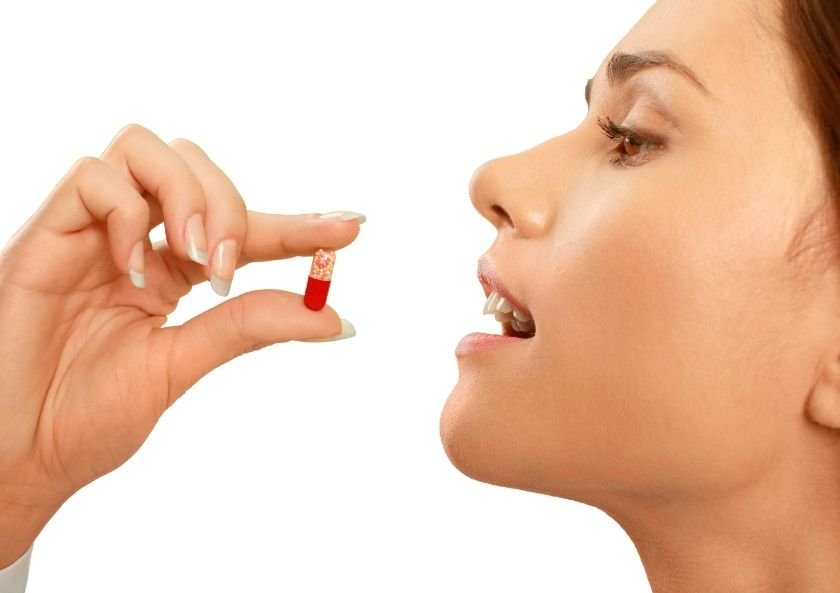The vast majority of reactions caused by drugs are called “adverse reactions to drugs”. Real drug allergy in children is rare and is caused by immune system. An allergic reaction is when the immune system develops an abnormal response to a normally harmless substance. The task of the immune system is to find foreign substances such as viruses and bacteria and get rid of them. Normally this reaction protects us from dangerous diseases. Children with drug allergies have a hypersensitive immune system. Immune systems react to the drug as if it is a harmful substance.
Drug Allergy Symptoms in Children
Medication allergy symptoms are as follows, may include some or all of them:
- Hives – itchy, bumpy, irregular patches on the skin
- Rash
- Itchy skin
- Swollen face, lips, or tongue
- Wheezing
Most drug allergy symptoms begin immediately after taking the drug, but some can take hours, sometimes up to weeks to appear.
A serious, common allergic reaction is called anaphylaxis. It can affect the skin, airways and organs. It also happens very quickly, usually within minutes or seconds after taking a drug. Anaphylaxis is an emergency situation and is life-threatening. Symptoms include:
- Problem breathing or a feeling of being closed in the throat
- Confusion
- Cramp
- Dizziness or fainting
- Hives covering most of the body
- Irregular heartbeat
- Shock or loss of consciousness
If you have any of these symptoms, call 911. If available, use an epinephrine injector and take antihistamines to slow the reaction.
Drug Allergy Diagnosis in Children
Doctors can often diagnose a drug allergy based on symptoms. Sometimes it is difficult to detect drug allergies. In such cases, an allergy test may be recommended.
There are several different types of drug allergy tests:
- Skin test: A doctor injects a small amount of medicine under your skin and monitors to see if there is a reaction. Skin tests only work for certain medications, such as penicillin and other antibiotics, muscle relaxants, and some cancer medications.
- Patch test: Small amount of medication is put on your skin. After 2 to 4 days, it will be checked by doctor for the reaction. In this test delayed allergic reactions to antibiotics, anticonvulsants, and other drugs are checked.
- Blood test: Laboratory tests can help diagnose some allergies to some medications.
Causes of Drug Allergy
Almost 20 percent of the population is allergic to one or more drugs. The most common drug allergy reported to date is antibiotic penicillin; about one in 10 people are allergic to the drug. However, more than 95 percent of them are able to tolerate penicillin and related drugs in the future, based on allergy ratings and tests.
Many people are also allergic to non-steroidal anti-inflammatory drugs (NSAIDS), a class of drugs containing ibuprofen and naproxen.
Drug Allergy Treatment in Children
The goal of treatment is to relieve symptoms and prevent a violent reaction. Treatment might include:
- Antihistamines to relieve mild symptoms such as rash, hives and itching
- Bronchodilators (moderate wheezing or cough), such as albuterol, to reduce asthma-like symptoms
- Corticosteroids (intravenous) administered to the skin, administered orally or intravenously
- Epinephrine by injection to treat anaphylaxis
Disturbing medicines and similar medicines should be avoided. Ensure all your healthcare providers – including dentists and hospital staff – know any drug allergy you or your child have.
In some cases, a penicillin (or other drug) responds to desensitization of an allergy. This treatment involves first giving very small doses, then increasing doses of drug to increase your tolerance to the drug. This should only be done by an allergist when there is no alternative medication for your medicine.
Drugs That Cause Allergic Reaction
Any drug can induce an allergic reaction. However, some have been found to be more likely than others to cause such problems:
- Antibiotics – amoxicillin (Moxatag), ampicillin, penicillin (Bicillin L-A), tetracycline (Sumicin) and others
- Nonsteroidal anti-inflammatory drugs such as ibuprofen and naproxen
- Aspirin
- Sulfa drugs
- Chemotherapy drugs
- Monoclonal antibody therapy – cetuximab (Erbitux), rituximab (Rituxian and others)
- HIV drugs – abacavir (Ziagen), nevirapine (Viramune) and others
- Insulin
- Antiepileptic drugs – carbamazepine (Tegretol), lamotrigine (Lamictal), phenytoin and others
- Muscle relaxants given by IV – atracurium, succinylcholine or vecuronium
How you use a drug also plays a role. Drug allergy is more likely to develop in the following situations:
- When you take your medicine as a vaccine instead of orally
- When you rub it on your skin
- When you take it often
Many drugs can cause non real allergic reactions. These reactions can range from mild side effects to dangerous symptoms. While the above medicines cause allergic reactions, some medications that usually cause non-allergic symptoms include:
- Heart disease medications called ACE inhibitors
- Contrast dyes for X-rays and CT scans
- Some chemotherapy drugs



